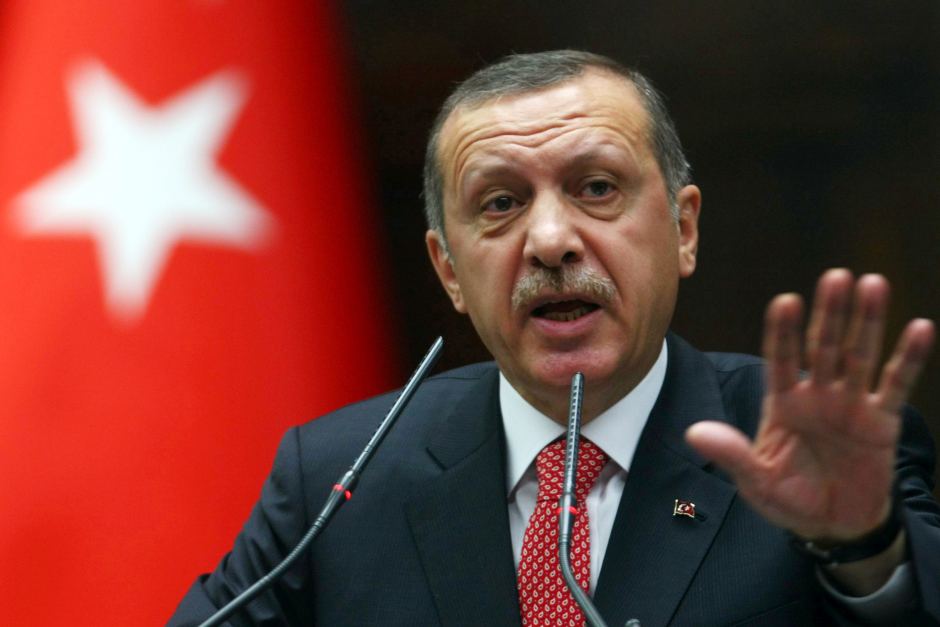The Chaos Candidate: Attacks Aid Erdogan Case for Strongman Rule

EghtesadOnline: A bus carrying soldiers blown up in a central Turkish city on Saturday. Two days later, Russia’s ambassador shot dead in Ankara near the parliament building bombed by warplanes during July’s botched coup.
The motives behind Turkey’s worst wave of violence in decades are varied. Yet the response of those close to Recep Tayyip Erdogan after each attack is the same: the already dominant president must be granted the executive powers that currently reside with parliament to help restore order, according to Bloomberg.
It might be working. Fears of deepening chaos have helped secure the backing of a conservative nationalist party, and public support for a presidential system has risen to 52 percent from 37 percent in June, according to Adil Gur, head of the A&G polling company. Erdogan’s advisers, analysts and some of his opponents say the president is now more likely to get his way, even as growing authoritarianism weighs on a stumbling economy.
“The enemies of the state are trying to stir chaos,” Ilnur Cevik, a chief adviser to Erdogan, said soon after Monday’s assassination of envoy Andrey Karlov by an active-duty police officer who shouted he was protesting Russia’s role in bombarding Aleppo. A presidential system would make “decision making much faster” and allow authorities to quell the violence, he said.
Turkey declared emergency rule following the failed coup, which Erdogan has blamed on the followers of exiled cleric Fethullah Gulen. More than 100,000 people have been purged from government, media, judicial and security jobs over their alleged links to the preacher.
Help Needed
At the same time, fighting between government forces and Kurdish separatists has flared after a Kurdish-dominated party won parliamentary representation for the first time, in a blow to Erdogan’s bid for greater powers. And terrorist attacks on targets including airports and bazaars, claimed by Islamist militants, have killed dozens, hammering the tourism industry.
At the moment, the ruling Islamist-rooted AK Party that Erdogan co-founded doesn’t have enough votes to force a decision on the presidential system to a public referendum.
While its two biggest rivals in parliament fiercely oppose the plan, Erdogan is having more luck with the Nationalist Movement Party. Its followers despise separatist Kurds, distrust the secularist opposition and have seen their own leader, Devlet Bahceli, bow to the president. The recent turmoil is making it an easier sell.
“An atmosphere of rising nationalist sentiment against the terrorist attacks is giving support to a single-party or one-man rule of the country with strong powers,” Huseyin Bagci, a professor of international relations at Ankara’s Middle Eastern Technical University, said by phone on Tuesday. “If the trend goes on like this, the presidential system could be approved” if sent to a referendum.
Boom Ending
While Erdogan hasn’t lost an election in 14 years, the conditions this time around are different. The nation’s long economic boom seems to be coming to an end, the lira is plumbing new lows, and relations with the European Union have worsened as Erdogan’s reputation has turned from liberating democrat to strident authoritarian.
“The parliamentary vote and referendum are not guaranteed to provide the desired result, although the prospects of Erdogan achieving a full executive presidency are good,” said Anthony Skinner, a director with U.K.-based forecasting company Verisk Maplecroft. “But economic pressures are likely to increase, meaning that he should not leave the referendum too late.”
Turkey’s gross domestic product contracted in the third quarter for the first time in seven years. The central bank is under government pressure to ease borrowing costs to spur growth even when inflation is still well above its target.
Not Enough
But Cevik, Erdogan’s adviser, said that “while Turkey is being criticized by the EU and others over the purges, the attack on the Russian ambassador showed that they were simply not enough.” He said security fears among Turks are so far outweighing economic concerns.
The response fits a pattern seen after every recent major attack in Turkey.
“Blame it on the usual suspects –- PKK or Gulen’s network –- before any investigations are carried out, a ban on news coverage, a call for national unity accompanied by the standard reminder that Turkey needs to be led by a strong leader due to domestic and external threats,” according to Teneo Intelligence Co-President Wolfango Piccoli.
The public reaction to the violence is being manipulated, helped by a media that’s mostly either pro-government or too intimidated to dig deeper, he said.
It has been left to opposition politicians to point out that Erdogan’s crackdown following the attempted takeover bid by a section of the military has failed to keep Turks safe.
“The killing of the Russian ambassador on the same street as parliament is a shame for all of us,” Ozgur Ozel, a parliamentary whip from the Republican People’s Party, said Tuesday.
Turkey’s state of emergency “is curbing basic rights and freedoms” without providing security, Ozel said. He said the beneficiary is Erdogan, who he accused of seeking “absolute power in an environment of instability and fear prevailing in the country.”


